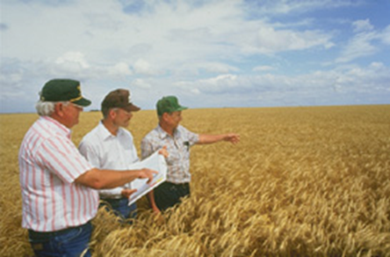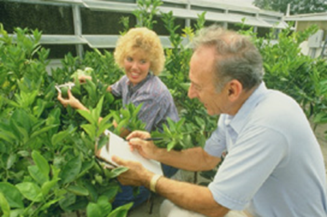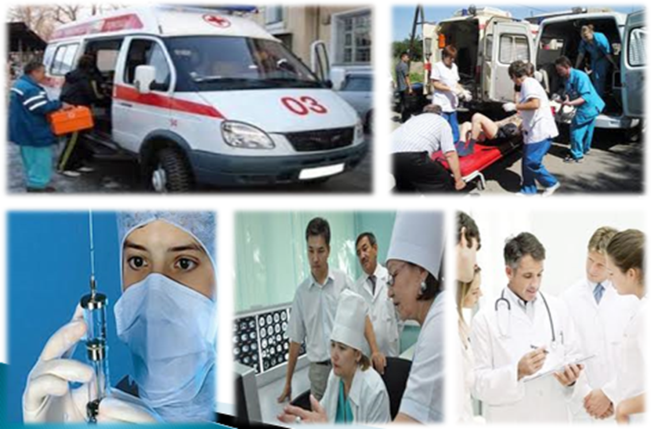The outline of the lesson plan
Subject: English
Form:8
Theme: Science in our life.
The aim of the lesson:
By the end of the lesson pupils should know about science in our life.
The objectives:
Educational: to introduce with the new words connected on the new themeScience in our life.
Developing:to develop pupils speech habits, through reading, listening and speaking. To improve pupils grammar and phonetic drills.
Upbringing: to bring pupils up to
Communicative: talking about the science and types of science. To organize works with the new words on pupils’ oral and written speech.
Form of the lesson: Traditional lesson
Type of the lesson: combined
Methods of the lesson: Explanation, demonstration, exercises.
Visual aids: card with the new words, grammar tables, interactive boards, new words‚ pictures
Inter subject connection: Kazakh, Ecology
The procedure of the lesson
Stages of the lesson
Teacher’s activity
Pupil’s activity
Time
I. Introduction
1. Greeting
-Good afternoon children
-Sit down, please.
2. Talking to duty
-Who is on duty today?
-What date is it today?
-What day is it today?
-Who is absent today?
-Good afternoon teacher
-I am on duty today
-Today the
-Today it is Friday
-All are present
II. Checking-up of the home task
-OK. Very nice! What was your home task?
-Who wants to answer?
Vocabulary dictation:
III. Presentation
1.Well! Let’s start our lesson. The themeоf our lesson for today is “Science in our life” ‚We’ll talk about science.
Science
Engineer
AgricultureGeneticist
Programmer
IV. Vocabulary presentation
-Very, nice! I’ll read you new words.
Science[s?i?ns]-?ылым
Introduction[intr?’dÙkòn]-таныстыру
energy[‘en?d3i]-энергия
wonder[ ‘wond?]-та??аларлы?
knowledge[ ‘n?lid3]-білім
invention[ in’venòn]–Ойлап табу
technology[ tek’n?l?d3i]-технология
2. Now, children listen to me, and repeat after me!
3.Read these words one by one!
Now‚boys and girls copy out new words in vocabulary.I?’ll give you 5 minutes.
Pupils listen to the teacher
Pupils repeat them in chorus
Pupils read
P1:P2:P3… each pupils a word one by one
Pupils copy out new words in their vocabulary
V. Warm-up
Teacher read the poem.
Phonetic drill
The more we learn, the more we know.
The more we know, the more we forget.
The more we forget, the less we know.
The less we forget, the more we know
So why study?
VI. Grammar presentation
Modal verb- must
+ You must go to school
- You mustn’t go to school
? Must you go to school?
VII. Grammar practice
All children ……. …… to school.
I ……… ……… to the radio.
You ……… ………. Books.
They ……… ……. play tennis.
……… …… begin the work?
You ……. …… to the cinema every day.
………. …… translate these letters?
They ……… ……. to our new school.
………. ……. Doing exercices now.
You ________brush your teeth three times a day.
You ________brush your teeth three times a day
You ________forget to do your homework.
You ________wear warm clothes in winter.
You ________play football in the classroom.
You ________listen to your teacher.
All children must go to school.
I must listen to the radio.
You must read books.
They must go play tennis.
Must I begin the work?
You mustn’t go to the cinema every day.
Must I translate these letters?
They must came to our new school.
You mustdoingexercices now.
You mustbrush your teeth three times a day.
You mustn’tforget to do your homework.
You mustwear warm clothes in winter.
You mustn’tplay football in the classroom.
You mustlisten to your teacher.
VIII. Conclusion
Agriculture
Science in Your Shopping Cart
Medicine
IX. Home task
T
F
-
You must wash your hands before lunch.
+
-
You mustn’t listen to your parents.
+
-
You must break the windows at school
+
-
You mustn’t eat fruits every day.
+
-
You must go for a walk every day.
+
Pupils listen to the teacher.
X. Evaluation
-I’ll give you marks. I want to evaluate your activities.
P1: You are the best one who works hard today. Your English is good. I put excellent.
P2: You want to work industrious, but have some mistakes today. I put mark good.
P3…P4…
Stand up, please!
Our lesson is over. Thanks for your attention. Good bye, guys.
Good bye, teacher.
Просмотр содержимого документа
«Science in our life.»
The outline of the lesson plan
Date:
Subject: English
Form:
Theme: Science in our life.
The aim of the lesson:
By the end of the lesson pupils should know about science in our life.
The objectives:
Educational: to introduce with the new words connected on the new themeScience in our life.
Developing:to develop pupils speech habits, through reading, listening and speaking. To improve pupils grammar and phonetic drills.
Upbringing: to bring pupils up to
Communicative: talking about the science and types of science. To organize works with the new words on pupils’ oral and written speech.
Form of the lesson: Traditional lesson
Type of the lesson: combined
Methods of the lesson: Explanation, demonstration, exercises.
Visual aids: card with the new words, grammar tables, interactive boards, new words‚ pictures
Inter subject connection: Kazakh, Ecology
Literature: English form 5 A.T. Ayapova, D Ukbaev/ Almaty /“Atamura”/ 2010
Workbookform 5 A.T .Ayapova, D Ukbaev/ Almaty “Atamura” 2010
Teacher’s book form 5 A.T .Ayapova, D Ukbaev/ Almaty “Atamura” 2010
The procedure of the lesson
Stages of the lesson
Teacher’s activity
Pupil’s activity
Time
I. Introduction
1. Greeting
-Good afternoon children
-Sit down, please.
2. Talking to duty
-Who is on duty today?
-What date is it today?
-What day is it today?
-Who is absent today?
-Good afternoon teacher
-I am on duty today
-Today the
-Today it is Friday
-All are present
II. Checking-up of the home task
-OK. Very nice! What was your home task?
-Who wants to answer?
Vocabulary dictation:
III. Presentation
1.Well! Let’s start our lesson. The themeоf our lesson for today is “Science in our life” ‚We’ll talk about science.
Science
Engineer
 AgricultureGeneticist
AgricultureGeneticist
Programmer
IV. Vocabulary presentation
-Very, nice! I’ll read you new words.
Science[sәiәns]-ғылым
Introduction[intrә’dkn]-таныстыру
energy[‘enәd3i]-энергия
wonder[ ‘wondә]-таңқаларлық
knowledge[ ‘nɔlid3]-білім
invention[ in’venn]–Ойлап табу
technology[ tek’nɔlәd3i]-технология
2. Now, children listen to me, and repeat after me!
3.Read these words one by one!
Now‚boys and girls copy out new words in vocabulary.I̓’ll give you 5 minutes.
Pupils listen to the teacher
Pupils repeat them in chorus
Pupils read
P1:P2:P3… each pupils a word one by one
Pupils copy out new words in their vocabulary
V. Warm-up
Teacher read the poem.
Phonetic drill
The more we learn, the more we know.
The more we know, the more we forget.
The more we forget, the less we know.
The less we forget, the more we know
So why study?
VI. Grammar presentation
Modal verb- must
+ You must go to school
- You mustn’t go to school
? Must you go to school?
VII. Grammar practice
| All children ……. …… to school. I ……… ……… to the radio. You ……… ………. Books. They ……… …….. play tennis. ……… …… begin the work? You ……. …… to the cinema every day. ………. …… translate these letters? They ……… …….. to our new school. ………. ……. Doing exercices now.
|
You ________brush your teeth three times a day.
You ________brush your teeth three times a day
You ________forget to do your homework.
You ________wear warm clothes in winter.
You ________play football in the classroom.
You ________listen to your teacher .
All children must go to school.
I must listen to the radio.
You must read books.
They must go play tennis.
Must I begin the work?
You mustn’t go to the cinema every day.
Must I translate these letters?
They must came to our new school.
You mustdoingexercices now.
You mustbrush your teeth three times a day.
You mustn’tforget to do your homework.
You mustwear warm clothes in winter.
You mustn’tplay football in the classroom.
You mustlisten to your teacher .
VIII. Conclusion
Agriculture


Science in Your Shopping Cart


Medicine

IX. Home task
|
|
| T | F |
| 1 | You must wash your hands before lunch. | + |
|
| 2 | You mustn’t listen to your parents. |
| + |
| 3 | You must break the windows at school |
| + |
| 4 | You mustn’t eat fruits every day. |
| + |
| 5 | You must go for a walk every day. | + |
|
Pupils listen to the teacher.
X. Evaluation
-I’ll give you marks. I want to evaluate your activities.
P1: You are the best one who works hard today. Your English is good. I put excellent.
P2: You want to work industrious, but have some mistakes today. I put mark good.
P3…P4…
Stand up, please!
Our lesson is over. Thanks for your attention. Good bye, guys.
Good bye, teacher.
 AgricultureGeneticist
AgricultureGeneticist




















